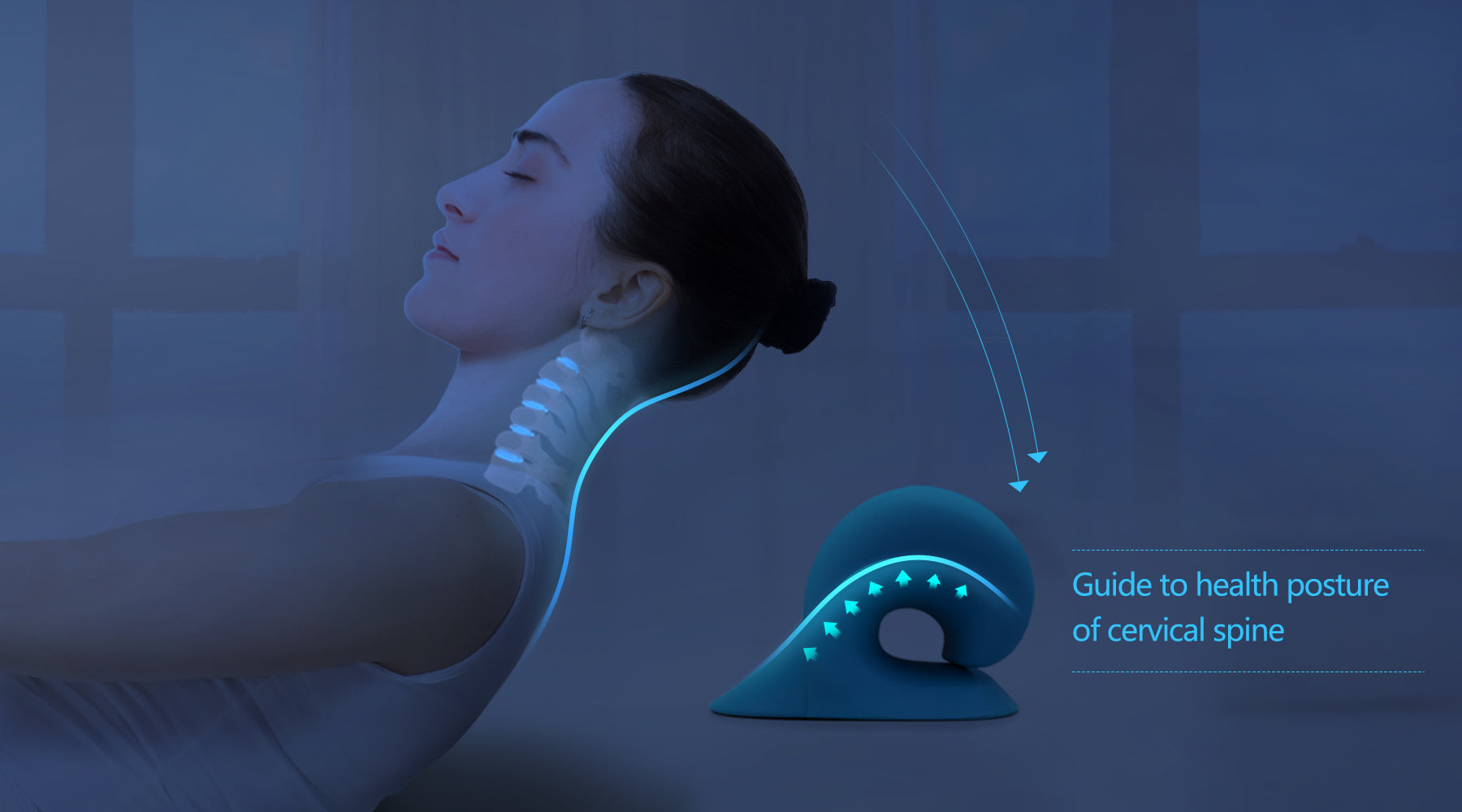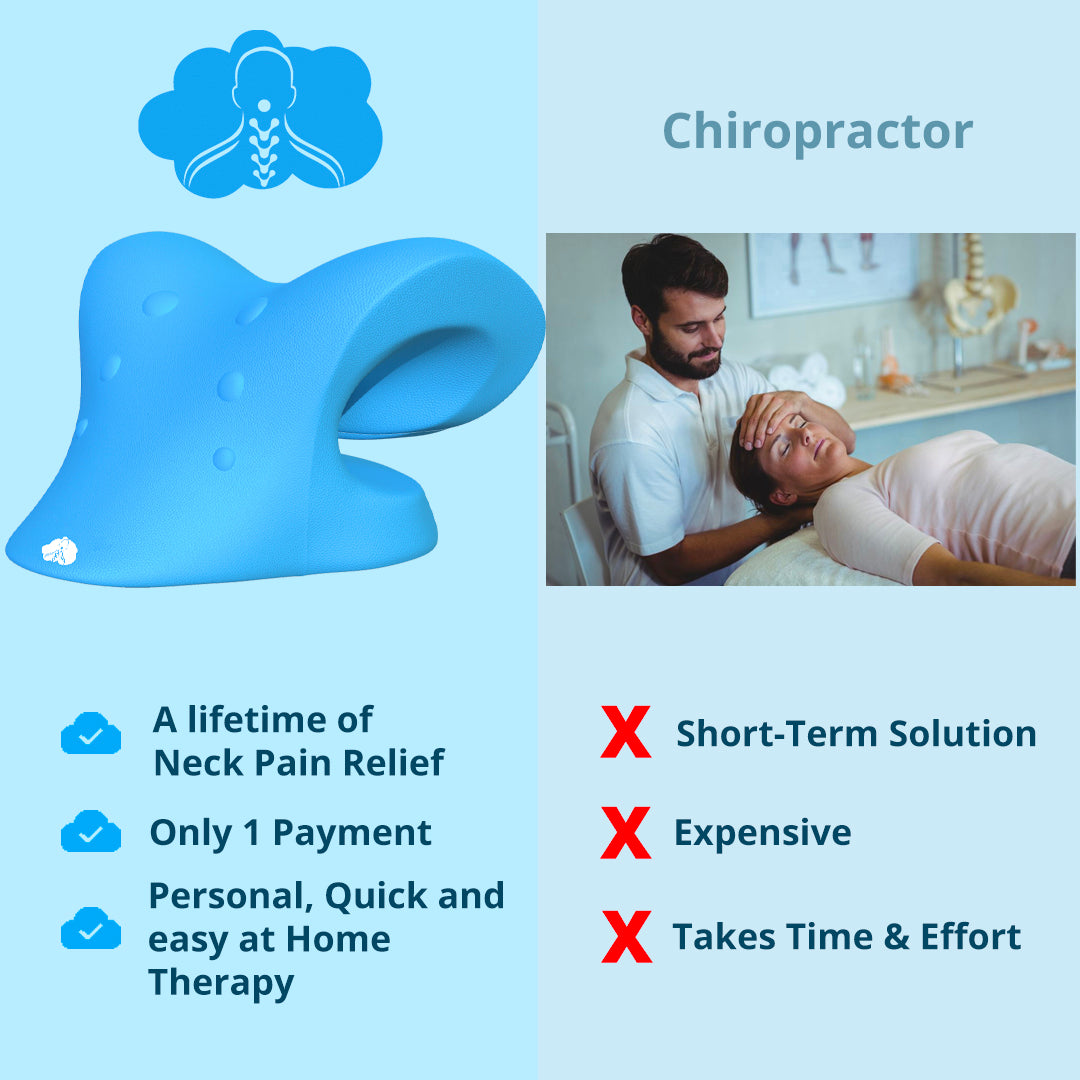Discover Neck Cloud: An Easy Solution for Neck Discomfort and Tension
Discover Neck Cloud: An Easy Solution for Neck Discomfort and Tension
Blog Article
The Effect of Stress on Neck Discomfort: Strategies for Decreasing Stress and Discomfort
In today's fast-paced world, it's no secret that tension has ended up being a common aspect in the beginning and exacerbation of neck discomfort. Join us on a trip to untangle the effect of stress and anxiety on neck discomfort and uncover reliable means to alleviate discomfort and enhance overall quality of life.
Comprehending Stress-Related Neck Discomfort
Stress-related neck pain can manifest as tension, rigidity, or pain in the neck and shoulder location. The connection in between anxiety and neck pain lies in the body's physiological response to anxiety, which can result in muscle mass tension and rigidity in the neck muscles.

Identifying Common Tension Locations
One typical tension area is the neck, where stress typically materializes physically. Tension headaches, tight neck muscular tissues, and limited range of movement are typical signs of stress-related neck tension. Being mindful of these usual stress areas can help people identify the physical indicators of stress and anxiety and take actions to resolve them before they escalate right into persistent pain or discomfort.
Applying Leisure Techniques
Relaxation methods are beneficial tools for decreasing neck discomfort created by tension. Furthermore, tasks like yoga exercise and tai chi include both physical movement and relaxation, making them reliable techniques for reducing anxiety and neck pain. By integrating these relaxation methods right into your day-to-day regimen, you can help manage tension levels, minimize stress in the neck, and relieve pain associated with stress-induced neck pain.
Incorporating Self-Care Practices
Incorporating self-care methods is vital for preserving general health and handling stress-related neck discomfort successfully. Taking part in routine exercise, such as gentle stretching exercises or yoga, can help reduce tension in the neck and shoulders. Practicing good posture throughout the day and taking constant breaks from long term that site resting or display time can likewise stop strain on the neck muscles.
Furthermore, prioritizing ample rest and developing a constant sleep routine can contribute considerably to minimizing anxiety degrees and advertising leisure. Producing a calming bedtime regimen, such as checking out a publication or taking a warm bath, can aid prepare the body and mind for peaceful rest. Additionally, preserving a balanced diet abundant in nutrients and staying moistened can support overall health and lower swelling that may exacerbate neck discomfort.
Integrating mindfulness practices, such as deep breathing workouts or meditation, can aid handle tension and advertise relaxation. why not find out more Taking time for oneself, participating in hobbies, and establishing limits to protect individual time are also vital elements of self-care that can add to minimizing stress and relieving neck pain.
Looking For Professional Aid
Exactly see this website how can people efficiently resolve consistent neck discomfort that is impacting their day-to-day life and well-being? Looking for expert aid can be an essential action in handling and reducing neck discomfort. Consulting with health care professionals such as chiropractic practitioners, physical specialists, or orthopedic specialists can give useful understandings and tailored therapy plans. These experts can carry out extensive evaluations to identify the underlying reasons of neck discomfort and recommend proper interventions.
Chiropractic practitioners concentrate on spinal adjustment techniques to enhance placement and reduce stress in the neck area. Physiotherapists supply targeted stretches and workouts to reinforce muscular tissues, boost adaptability, and boost total neck feature. Orthopedic professionals can give innovative clinical treatments such as shots or surgical alternatives for severe cases of neck pain.
Verdict

Stress-related neck pain can materialize as stress, rigidity, or pain in the neck and shoulder location. The link between tension and neck discomfort exists in the body's physiological feedback to tension, which can result in muscle mass tension and tightness in the neck muscles. Stress frustrations, tight neck muscular tissues, and limited variety of movement are typical symptoms of stress-related neck tension. By incorporating these leisure strategies right into your everyday regimen, you can aid handle anxiety levels, reduce stress in the neck, and alleviate pain connected with stress-induced neck pain.

Report this page